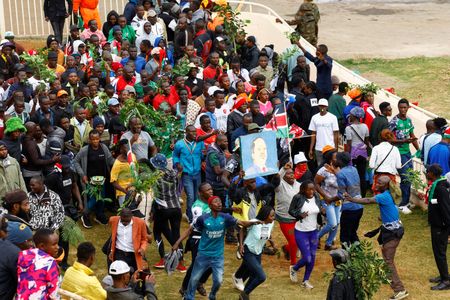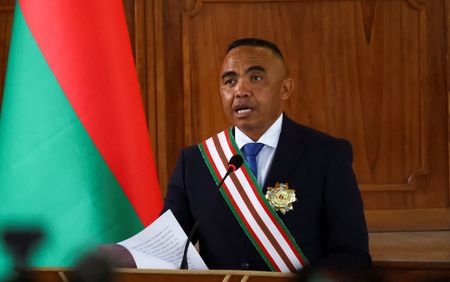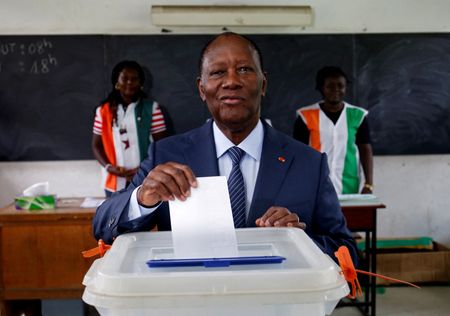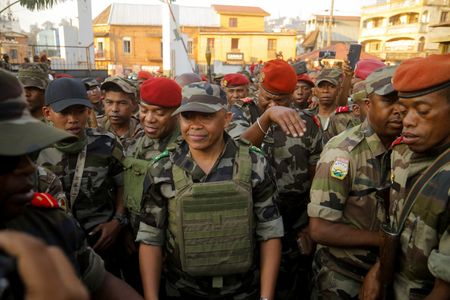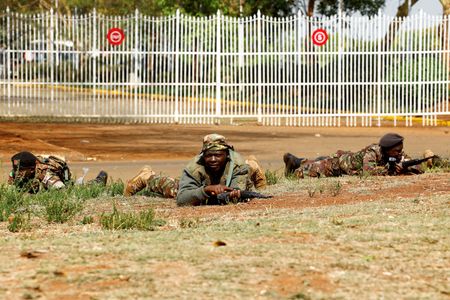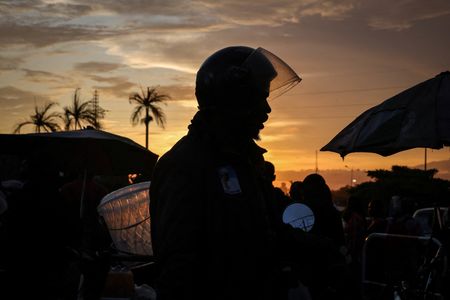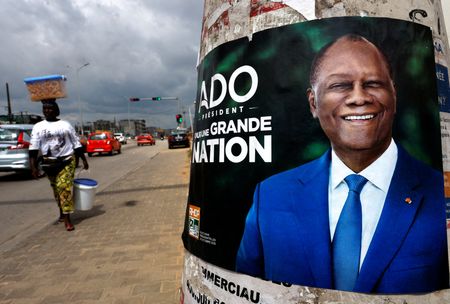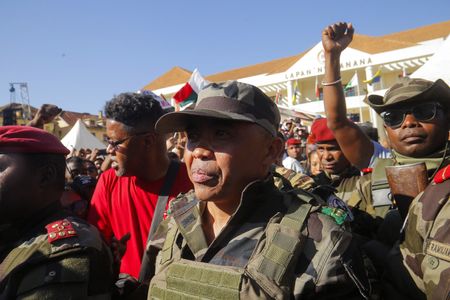By Vincent Mumo
NAIROBI (Reuters) -Thousands of mourners attended a state funeral for Kenyan opposition leader Raila Odinga on Friday under heavy security after a deadly day that saw officers open fire to disperse crowds at a stadium hosting a public viewing of his body.
Odinga, a major figure for decades in Kenyan politics who was once a political prisoner and ran unsuccessfully for president five times, died on Wednesday aged 80 in India, where he had been receiving medical treatment.
He commanded a passionate following in the East African nation and huge crowds took to the streets from early Thursday, storming the country’s main airport when the plane carrying his body arrived and later breaching a gate of the Nairobi stadium hosting the public viewing.
Security forces then fired in the air and police lobbed tear gas to disperse the crowd, according to a Reuters witness. Police said three people were killed, while KTN News and Citizen TV put the number of fatalities at four, with scores injured.
Kenyan authorities deployed heavy security on Friday, with police keeping crowds at a distance outside parliament, footage from local television and Ruto’s office showed.
Odinga’s body was taken to the parliament where it would lie in state before being taken to Nairobi’s Nyayo National Stadium, with President William Ruto, heads of the parliament and the judiciary in attendance.
Somalia’s President Hassan Sheikh Mohamud was among the African dignitaries seen at the ceremony.
Thousands of mourners at the stadium were waving white handkerchiefs and dancing at the venue which was bedecked with large banners with Odinga’s portrait. Others blew whistles and vuvuzelas in honour of the man they referred to as “Baba” (“Father” in Swahili).
The mourners, some of whom were not yet born in 1991 when Kenya became a multi-party democracy, paid tribute to Odinga’s efforts as an activist.
“Raila Odinga, the father of democracy in Kenya, was a selfless leader who would risk everything – even his life – to make Kenya work,” Jean Jerry Abeka, 24, told Reuters.
Though mainly known as an opposition figure, Odinga became prime minister in 2008 and also struck a political pact with former President Uhuru Kenyatta in 2018, and with Ruto last year in a career of shifting alliances.
He commanded deep devotion among supporters countrywide, especially in his Luo tribe based in western Kenya, many of whom believe he was cheated of the presidency by electoral fraud.
(Reporting by George Obulutsa and Vincent Mumo; editing by Ammu Kannampilly and Toby Chopra)

